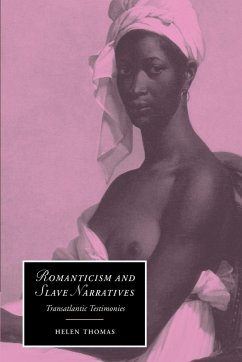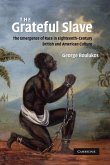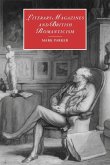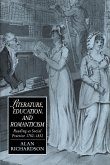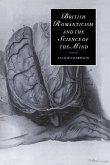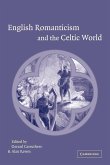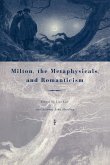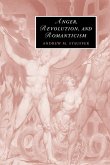The first major attempt to relate canonical Romantic texts to writings of the African diaspora.
Helen Thomas's study opens a new avenue for Romantic literary studies by exploring connections with literature produced by slaves, slave owners, abolitionists and radical dissenters between 1770 and 1830. In the first major attempt to relate canonical Romantic texts to the writings of the African diaspora, she investigates English literary Romanticism in the context of a transatlantic culture, and African culture in the context of eighteenth-century Britain. In so doing, the book reveals an intertextual dialogue between two diverse yet equally rich cultural spheres, and their corresponding systems of thought, epistemology and expression. Showing how marginalised slaves and alienated radical dissenters contributed to transatlantic debates over civil and religious liberties, Helen Thomas remaps Romantic literature on this broader canvas of cultural exchanges, geographical migrations and identity-transformation, in the years before and after the abolition of the slave trade.
Table of content:
Introduction; 1. The English slave trade and abolitionism; 2. Radical dissent and spiritual autobiography: Joanna Southcott, John Newton and William Cowper; 3. Romanticism and abolitionism: Mary Wollstonecraft, William Blake, Samuel Taylor Coleridge and William Wordsworth; 4. Cross-cultural contact: John Stedman, Thomas Jefferson and the slaves; 5. The diasporic identity: language and the paradigms of liberation; 6. The early slave narratives: Jupiter Hammon, John Marrant and Ottobah Gronniosaw; 7. Phyllis Wheatley: poems and letters; 8. Olaudah Equiano's Interesting Narrative; 9. Robert Wedderburn and mulatto discourse.
Helen Thomas's study opens a new avenue for Romantic literary studies by exploring connections with literature produced by slaves, slave owners, abolitionists and radical dissenters between 1770 and 1830. In the first major attempt to relate canonical Romantic texts to the writings of the African diaspora, she investigates English literary Romanticism in the context of a transatlantic culture, and African culture in the context of eighteenth-century Britain. In so doing, the book reveals an intertextual dialogue between two diverse yet equally rich cultural spheres, and their corresponding systems of thought, epistemology and expression. Showing how marginalised slaves and alienated radical dissenters contributed to transatlantic debates over civil and religious liberties, Helen Thomas remaps Romantic literature on this broader canvas of cultural exchanges, geographical migrations and identity-transformation, in the years before and after the abolition of the slave trade.
Table of content:
Introduction; 1. The English slave trade and abolitionism; 2. Radical dissent and spiritual autobiography: Joanna Southcott, John Newton and William Cowper; 3. Romanticism and abolitionism: Mary Wollstonecraft, William Blake, Samuel Taylor Coleridge and William Wordsworth; 4. Cross-cultural contact: John Stedman, Thomas Jefferson and the slaves; 5. The diasporic identity: language and the paradigms of liberation; 6. The early slave narratives: Jupiter Hammon, John Marrant and Ottobah Gronniosaw; 7. Phyllis Wheatley: poems and letters; 8. Olaudah Equiano's Interesting Narrative; 9. Robert Wedderburn and mulatto discourse.

